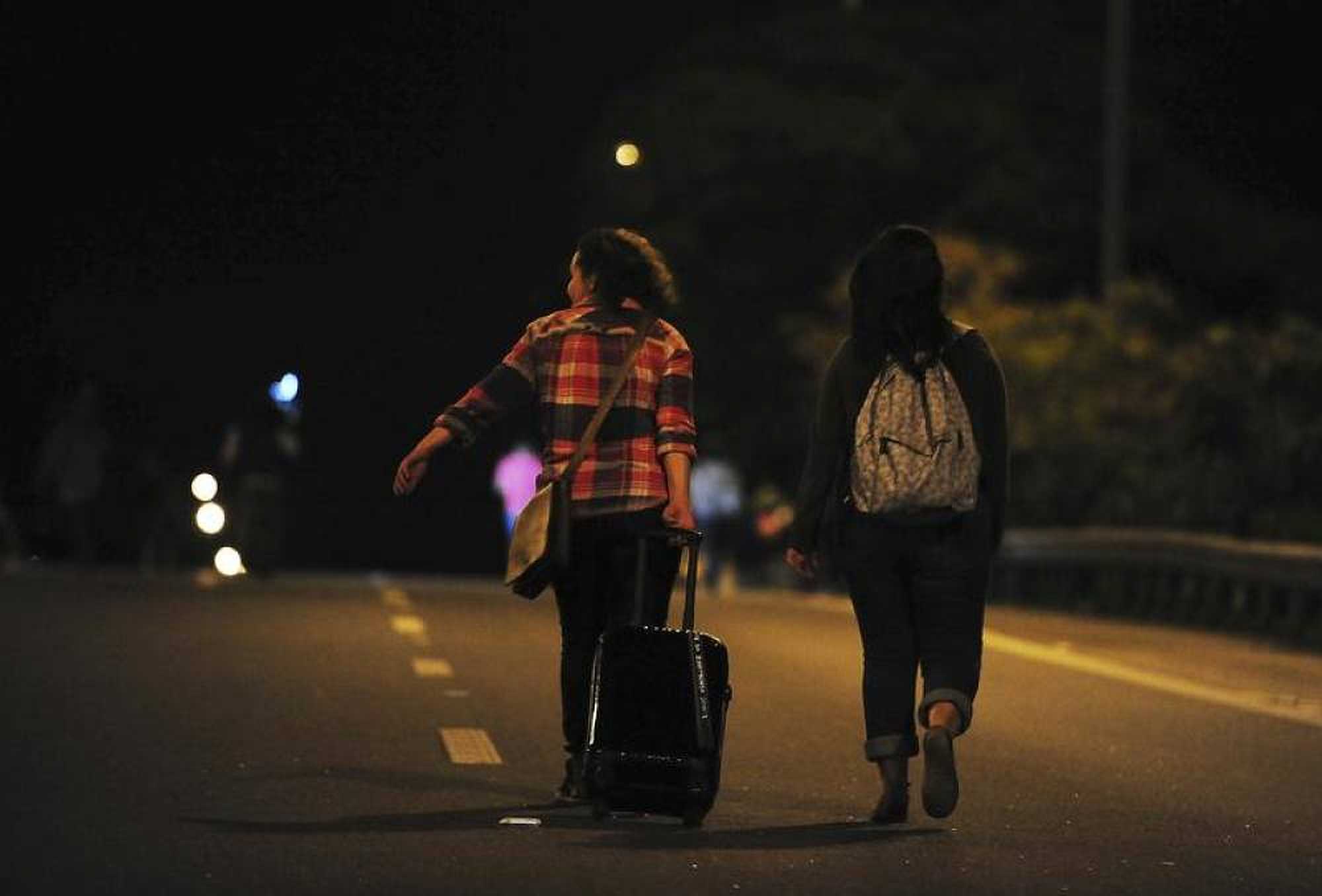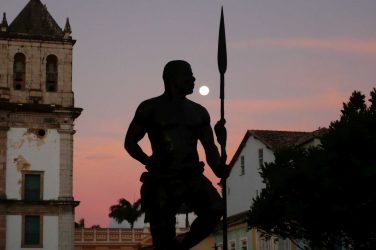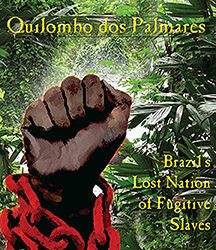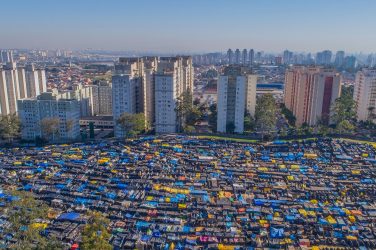Helena had been struggling to provide for her six-year-old son in Africa’s island nation of São Tomé e Príncipe when she was offered an opportunity: a job as a cook in Brazil.
She arrived in February 2018 hoping for a new life, but was forced to swallow cocaine to smuggle to Africa, arrested at Brazil’s busiest airport, Guarulhos International, and sentenced to five years in jail.
“I felt like everything was over for me,” said 26-year-old Helena, who declined to give her real name for fear of repercussions, clutching her handbag containing a legal document stating she had been freed from jail to prevent her re-arrest.
“You feel like the worst criminal in the world. ‘What does garbage like you come here for? Why not stay in your own country?’ they told me. I wanted to respond, but since they were police, I kept quiet,” she said.
While modern-day slaves in Brazil usually raise cattle, harvest coffee and log timber, authorities see exploitation for drug trafficking as a growing problem with an influx of poor migrants from neighboring Venezuela and Bolivia.
Women make up about half of some 300 drug mules arrested each year at Guarulhos International in São Paulo – Brazil’s biggest city and financial center – according to police data.
Helena is one of dozens of migrant women in Brazil that Instituto Terra, Trabalho e Cidadania (ITTC), a local charity, believes were unfairly jailed for drug-trafficking as they were human trafficking victims who were forced to commit the crime.
It is a link that Brazil promised to study in its 2018 plan to combat human trafficking, after introducing tougher penalties for the crime in 2016.
The ITTC estimates that 12% of 365 drug-smuggling migrant women it has assisted since 2016 may be human trafficking victims, rather than criminals, who could be freed if they won an appeal.
South Africa was the most common nationality of potential victims, followed by Venezuela and Bolivia.
The real numbers are probably higher, and likely to grow due to an uptick in vulnerable immigrants, according to the ITTC, which helps jailed women contact their families and connects them with shelters upon release.
“As conditions in neighboring countries worsen, for example in Venezuela … the trend is for (human trafficking) to grow,” said Carolina Vieira, a lawyer for ITTC, who helps women freed from jail get key legal documents like social security cards.
Brazilian sweatshops have long been a magnet for workers from poorer Latin American countries as higher salaries allow migrants to support families back home – and numbers have soared with Venezuela’s political and economic crisis.
Coerced
Some 5,000 people have been arrested for drug trafficking in Brazil’s airports in the last 10 years, according to data obtained by O Globo newspaper via the Access to Information Law.
Sentences generally range from five to 15 years in jail.
Dozens of women – like Helena – were coerced to smuggle drugs after being lured to Brazil with false job promises, only to be held in apartments on arrival, with their passports taken away, ITTC experts and public defenders said.
Some women agreed to carry drugs after threats were made against them or their families, while others thought they were transporting sweets or shoes, only to find that the luggage they were given had drugs hidden in the lining, said ITTC’s Vieira.
While human trafficking victims have the right to an acquittal if they are forced to commit a crime, legal experts said it can be hard to prove the element of coercion.
“For a judge to understand that there has been human trafficking, they need a very clear cut case,” said Nara Rivitti, a public defender who represents jailed migrant women.
“It’s very hard to produce evidence (of human trafficking).”
Amanda’s story falls into this gray area. She originally agreed to smuggle drugs from her home country of South Africa to Brazil and back in 2013 in exchange for a passport.
She thought it was a one-time deal, so when she was ordered to do it again, she refused. Then she was kidnapped.
“They took me to some other place, and all six of them raped me,” said Amanda, who declined to give her real name.
“From that point on, I just continued with the whole thing. They told me this was nothing compared to what would happen to me if I got out.”
For two years, she transported drugs in her luggage or strapped to her body and boarded planes, driven on by threats against her family. But custom officials became suspicious as the number of stamps on her passport grew.
In 2015, she was caught at Guarulhos – and thanked the officer who arrested her.
“I was really relieved,” said Amanda, who was freed in 2018 after serving two years and eight months – just under half her sentence. Amanda fears she would be killed if she returned to South Africa and does odd jobs in Brazil.
Foreigners who are convicted should be deported after their release, but due to lack of government funds to pay for tickets, expulsions are rarely carried out, said João Chaves, a public defender who specializes in migration.
The most common outcome is a life in limbo – they stay in Brazil without the legal right to do so, which limits their access to jobs, healthcare and housing, he said.
“They become a ‘legal zombie’,” he said. “They have been legally expelled from the country, but are still here physically.”
Helena from São Tomé e Príncipe was freed several months ago, after serving 17 months, and works as a waitress.
She cannot afford the 3,000 reais (US$ 720) it would take to fly home, so she is hoping to be deported.
Helena’s family had no idea where she was for more than a year after her arrest, until the ITTC called them with the news.
“I had vanished,” she said, adding that her father died soon after she spoke to him – using another inmate’s smuggled phone – from a stroke she believes was caused by the trauma.
“I want to go back, see my son and my mother. I have never been apart from my family for this long.”
This article was produced by the Thomson Reuters Foundation. Visit them at http://www.thisisplace.org















